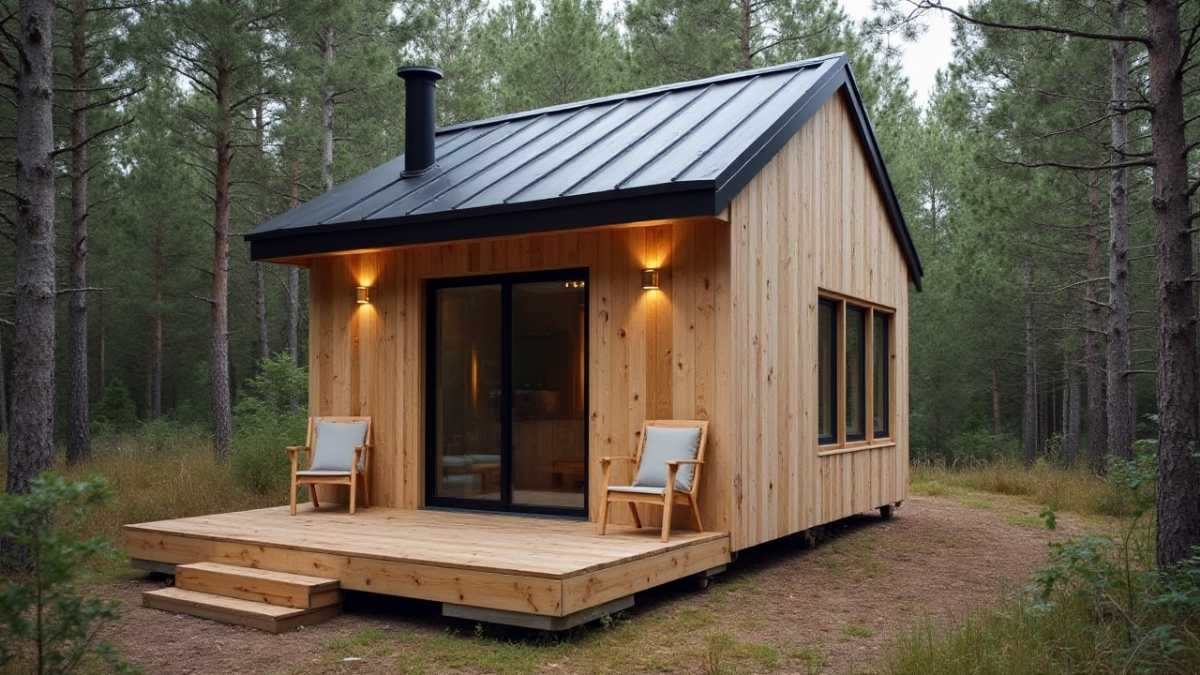
What if I told you there’s a way to live rent-free while building serious wealth?
You’d probably think I’m crazy, right? But here’s the thing—thousands of regular people are doing exactly that through something called “house hacking.” And the results? We’re talking about 80%+ annual returns while eliminating your biggest expense: housing.
I know what you’re thinking. “This sounds too good to be true.” Trust me, I get it. But stick with me here, because the numbers don’t lie.
Why Everyone’s Talking About House Hacking Right Now
📈 Housing Market Reality Check
🎯 Who’s Embracing House Hacking?
Let’s be honest—buying a home feels impossible these days. The median home price hit $413,874, and you need to make over $114,000 a year just to qualify for a basic mortgage. Meanwhile, 30-year mortgage rates hit 8% recently—the highest in over two decades.
But here’s where it gets interesting. While traditional homebuyers are getting priced out, house hackers are thriving. Get this: 55% of millennial homebuyers and 51% of Gen Z buyers now consider house hacking essential to their home-buying strategy.
Why? Because they’ve cracked the code.
Instead of letting housing costs drain their bank accounts, they’re turning their homes into income-generating machines. And the best part? You don’t need to be rich to start.
What Exactly Is House Hacking?

Think of house hacking as the ultimate life hack for homeownership. Here’s how it works:
You buy a property with multiple units (like a duplex) or extra rooms. You live in one part and rent out the rest. The rental income covers most—or all—of your mortgage payment.
Boom. You’re essentially living for free while building equity and wealth.
There are several ways to do this:
- Buy a duplex and rent out the other side
- Get a house with extra bedrooms and rent them to roommates
- Add an ADU (accessory dwelling unit) to your property
- Convert spaces like basements or garages into rentals
The beauty is in its simplicity. You’re not doing anything crazy or complicated—you’re just being smart about how you use your space.
Real People, Real Results (The Numbers Will Shock You)
Let me share some real stories that’ll blow your mind.
Craig’s Denver Duplex: Craig bought a $385,000 duplex with just $17,000 down. He lived behind a curtain in the living room (I’m not kidding) while renting out the rest. The result? $6,491 in annual cash flow and an 82% first-year ROI.

Think about that for a second. An 82% return on investment. The stock market averages about 10%.
Jorge’s Dallas Strategy: Jorge bought a single-family home with $15,000 down and rents out two bedrooms for $650 each. His monthly mortgage? $1,490. His rental income? $1,300. He’s living for almost nothing while building equity every month.
Austin’s Denver House Hack: Austin rents four bedrooms in his house for $3,200 total while living in the fifth room. His housing cost? Under $300 per month. When he eventually moves out, he’ll have $4,971 in annual cash flow.
These aren’t lottery winners or trust fund kids. They’re regular people who figured out how to make real estate work for them instead of against them.
The Five Ways House Hacking Makes You Rich

Here’s why house hacking is so powerful—you’re making money in five different ways simultaneously:
1. Cash Flow Your tenants literally pay your mortgage (and hopefully more).
2. Principal Paydown Every month, more of your mortgage payment goes toward the principal instead of interest.
3. Appreciation: Your property value increases over time.
4. Tax Benefits You can depreciate the rental portion and deduct expenses.
5. Housing Cost Savings: You eliminate or drastically reduce your biggest monthly expense.
Most investments give you one or maybe two of these benefits. House hacking gives you all five at once.
Where to Find Your House Hacking Goldmine

Not all markets are created equal for house hacking. You want to find places where the numbers work.
Cleveland, Ohio, tops the list with price-to-rent ratios of 11-12. Translation? Properties are cheap enough that the rent covers your expenses and then some.
Pittsburgh, Pennsylvania, comes in second. You only need to make $58,232 to qualify for homes here, and the rental demand stays strong thanks to universities and hospitals.
Fort Wayne, Indiana, offers incredible value with median prices around $98,230 and solid rental income potential.
Here’s what to look for in any market:
- Population growth over 20% since 2000
- Income growth above 20%
- Price-to-rent ratios under 15 (ideally 11-12)
- Low crime rates (under 300 on City Data scale)
- Strong rental demand from universities, hospitals, or major employers
The sweet spot? Find markets where everyone else thinks the area is “boring” but has solid fundamentals. These hidden gems often provide the best returns.
The Different House Hacking Strategies (Pick Your Adventure)

The Classic Duplex/Triplex/Fourplex. This is house hacking 101. Buy a multi-unit property, live in one unit, rent the others. With an FHA loan, you only need 3.5% down and can buy properties up to four units.
A typical scenario: $220,000 fourplex in St. Louis with just $10,000 cash to close. You generate $2,000 monthly rental income against $1,400 in payments. Even breaking on cash flow, you save $700 monthly in housing costs.
The Room Rental Strategy: Buy a single-family home with extra bedrooms and rent them out individually. This works great in college towns or cities with young professionals.
Example: $250,000 four-bedroom house with $12,500 down. Rent three rooms for $700 each ($2,100 total) against $1,750 in total costs. You live for free and make $350 monthly cash flow.
The ADU Approach If you already own a home, consider adding an accessory dwelling unit. Yes, construction costs run $40,000-$120,000, but you can generate $14,400-$30,000 annual rental income.
Carlos and Marissa built a tiny 234-square-foot casita and made $9,200 in six months through Airbnb. Their housing costs dropped to approximately $750 per month.
The BRRRR Method (Advanced) Buy a fixer-upper, Rehab it, Rent it out, Refinance to pull your money back out, and Repeat. This strategy lets you scale quickly but requires more experience and capital.
The Money Talk: How the Numbers Work

Let’s get into the nitty-gritty because this is where house hacking gets exciting.
The 10-Year Comparison:
- Traditional homeownership: $240,000 in mortgage payments over 10 years
- House hacking with $1,500 monthly rental income: $60,000 net housing costs over 10 years
- Your savings: $180,000
And that doesn’t even include the cash flow, equity buildup, or appreciation.
The 3-Year Wealth Building Model:
- Year 1: First property generates $20,400 total wealth benefit
- Year 2: Add second property for $31,200 combined annual benefit
- Year 3: Three properties producing $45,600 total annual cash flow
By year three, you could have $150,000+ in increased net worth from equity and appreciation alone.
Tax Benefits That’ll Make Your Accountant Smile

Here’s where house hacking gets fun from a tax perspective.
You can depreciate the rental portion of your property over 27.5 years. On a $400,000 duplex where 50% is rental, that’s $5,455 in annual depreciation deductions.
In the 24% tax bracket, that saves you over $1,300 annually in taxes.
Plus, you can deduct:
- Proportionate mortgage interest
- Property taxes (avoiding the $10,000 SALT cap on the rental portion)
- Insurance costs
- Repairs and maintenance
- Advertising and tenant screening costs
When you eventually sell, the Section 121 capital gains exclusion lets you avoid taxes on $250,000 (single) or $500,000 (married) in gains from the portion you lived in.
Common Mistakes That Kill House Hacking Dreams

Let me save you from the expensive lessons others learned the hard way.
Mistake #1: Terrible Tenant Screening. One bad tenant can wipe out months of profits. Always check your credit scores (aim for 650+), verify income at three times the monthly rent, and contact previous landlords.

Mistake #2: Buying the Most Expensive Property. Just because you can afford the mortgage doesn’t mean the numbers work. Always run conservative calculations and make sure rental income covers your costs.
Mistake #3: Forgetting About Expenses Budget for maintenance (5-10% of rental income), vacancy reserves (8-12% annually), and capital expenditures. These costs are real and will happen.

Mistake #4: Ignoring Local Laws. Check zoning laws, HOA restrictions, and rental regulations before you buy. Some areas prohibit rentals entirely or have strict occupancy limits.
Mistake #5: Getting Too Friendly with Tenants Maintain professional boundaries. You’re running a business, not making best friends.
The Legal Stuff You Need to Know
⚖️ Legal & Compliance Essentials
🏦 FHA Requirements
🛡️ Insurance Needs
📋 Compliance Checklist
🎯 Fair Housing Compliance
Race • Color • Religion • Sex • National Origin • Age • Disability • Familial Status
Plus state-specific additions like sexual orientation, source of income
House hacking sits in a gray area between homeownership and real estate investing, so there are some rules to follow.
FHA Loan Requirements:
- Move in within 60 days of closing
- Live there for at least 12 months
- For 3-4 unit properties, pass the “self-sufficiency test” (75% of rental income must cover PITI payments)
Insurance Considerations: You’ll need liability coverage of $300,000-$500,000 minimum, plus potentially an umbrella policy. Mixed-use properties often require landlord insurance instead of standard homeowner’s policies.
Zoning and HOA Rules: Single-family zoning might prohibit rentals. HOAs can ban rentals entirely or impose restrictions. Do your homework before buying.
Tools and Tech to Make Your Life Easier
🛠️ Essential House Hacking Tech Stack
📊 Analysis Tools
$39/month • Property analysis
Market finder • AI-powered
Free • House hacking specific
🎯 Property Management
$12-42/month • Mobile-first
$58-375/month • Full-service
Free • Tenant screening
💰 Financial Tracking
Free • Automated accounting
Banking for landlords
Tax prep integration
🚀 Automation Benefits
BiggerPockets Pro ($39/month) provides property analysis tools and market data that’s worth every penny for serious house hackers.
RentRedi ($12-$42/month) handles rent collection, maintenance requests, and tenant communication all from your phone.
Stessa offers free accounting and portfolio tracking specifically designed for rental property owners.
For financing, use FHA loan calculators to determine if properties pass the self-sufficiency test before making offers.
What’s Coming Next in House Hacking

The future looks bright for house hackers. Remote work is reshaping where people can live, with 22% of Americans working remotely by 2025. This means high earners can buy in lower-cost markets while keeping their city salaries.
Generation Z is driving rental demand as the only generation adding renter households. With 66.1 million Gen Z individuals entering peak renting years and 33% believing homeownership is out of reach, rental demand will stay strong.

Technology integration is making property management easier through AI-powered tools, automated screening, and smart home features that command 14% price premiums.
Your House Hacking Action Plan
🗺️ Your 12-Month House Hacking Roadmap
📚 Foundation Phase
• Join BiggerPockets community
• Improve credit score to 680+
• Save down payment + $5-10K reserves
• Find investor-friendly agent
🔍 Property Hunt Phase
• Get pre-approved for financing
• Make offers with due diligence
• Complete inspections
• Negotiate repairs & close
🚀 Launch & Optimize Phase
• Execute solid lease agreements
• Set up rent collection systems
• Track numbers monthly
• Build tenant relationships
📈 Scale & Grow Phase
• Consider property management
• Plan exit strategies
• Optimize and refinance
• Build portfolio systematically
🎯 Success Benchmarks
Ready to get started? Here’s your roadmap:
Months 1-3: Get Your Foundation Ready
- Read “The House Hacking Strategy” by Craig Curelop
- Join BiggerPockets and local real estate investor groups
- Improve your credit score to 680+
- Save your down payment plus $5,000-$10,000 in reserves
- Find an investor-friendly real estate agent
Months 4-6: Hunt for Your Property
- Analyze 20+ properties using the 1% rule (monthly rent = 1% of purchase price)
- Get pre-approved for financing
- Make offers with thorough due diligence
- Complete inspections and negotiate repairs
Months 7-12: Launch and Optimize
- Screen tenants carefully and execute solid lease agreements
- Set up systems for rent collection and maintenance
- Track your numbers monthly
- Build good tenant relationships while maintaining boundaries
Year 2+: Scale and Grow
- Use your equity and cash flow to buy property #2
- Consider hiring a property management company as you scale
- Plan your exit strategy (1031 exchange, cash-out refinance, etc.)
The Bottom Line: Your Path to Financial Freedom
House hacking isn’t just about living for free (though that’s pretty awesome). It’s about taking control of your financial future in a way that feels manageable and realistic.
You don’t need perfect credit, a huge salary, or a trust fund. You just need to be willing to think differently about homeownership and take action.
The best time to start? Yesterday. The second-best time? Right now.
Your Next Step: Download a house hacking calculator and start running numbers on properties in your area. See what’s possible. Join the BiggerPockets community and start learning from people who are already doing this successfully.
The only thing standing between you and living rent-free while building wealth is taking that first step. What are you waiting for?







